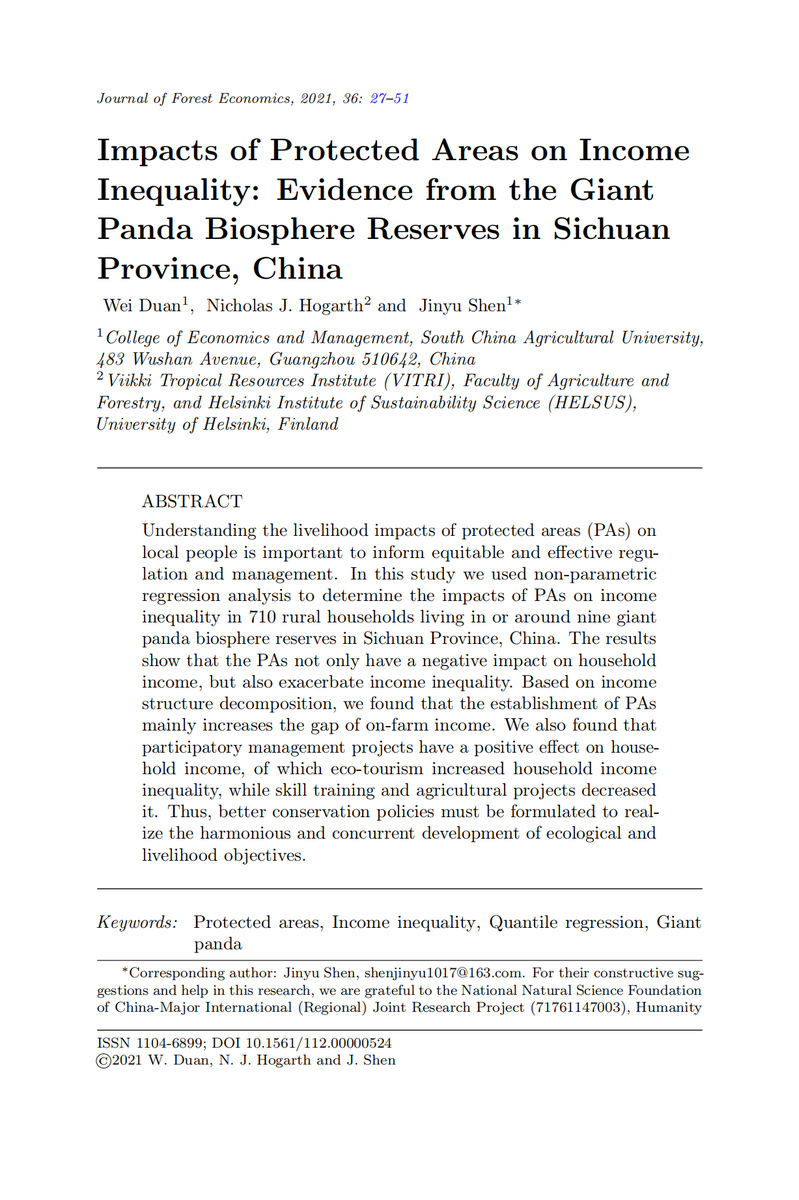出版时间: 2021 卷: 36 期:1-2
论文地址: https://www.webofscience.com/wos/alldb/full-record/WOS:000619105800002
摘 要
Understanding the livelihood impacts of protected areas (PAs) on local people is important to inform equitable and effective regulation and management. In this study we used non-parametric regression analysis to determine the impacts of PAs on income inequality in 710 rural households living in or around nine giant panda biosphere reserves in Sichuan Province, China. The results show that the PAs not only have a negative impact on household income, but also exacerbate income inequality. Based on income structure decomposition, we found that the establishment of PAs mainly increases the gap of on-farm income. We also found that participatory management projects have a positive effect on household income, of which eco-tourism increased household income inequality, while skill training and agricultural projects decreased it. Thus, better conservation policies must be formulated to realize the harmonious and concurrent development of ecological and livelihood objectives.
关键词
Protectedareas; Incomeinequality; Quantile regression; Giantpanda

基金资助:
the National Natural Science Foundation of China-Major International (Regional) Joint Research Project (71761147003), Humanity and Social Science Youth foundation of Ministry of Education, China (17YJC790029), Natural Science Foundation of Guangdong province, China (2017A030310077) and Natural Science Foundation of China (71373024)
责任编辑:董晓玲
审 定:黄 松